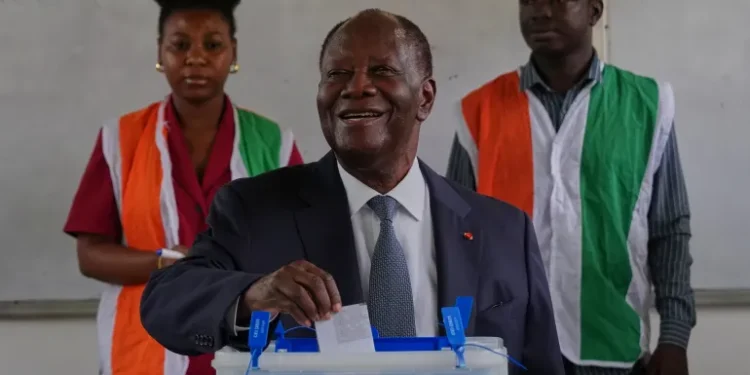Ivory Coast President Alassane Ouattara has won re-election with 89.77% of the ballots cast, according to provisional results announced by the country’s Independent Electoral Commission.
The 83-year-old incumbent’s victory was widely expected, given the exclusion of his top rivals, former President Laurent Gbagbo and former Credit Suisse CEO Tidjane Thiam, from the polls.
The election saw a voter turnout of around 50%, comparable to the 2010 and 2015 presidential elections, but significantly lower than the 80% who voted in the first round of the 2010 election.
Ouattara’s closest challenger, Jean-Louis Billon, conceded defeat, receiving 3.09% of the vote, while former First Lady Simone Gbagbo secured 2.42% .
Despite the landslide win, concerns have been raised about the legitimacy of the election, with opposition parties denouncing a lack of interest from voters and a marked North-South divide.
The government deployed 44,000 security personnel to maintain order during the election, amid sporadic protests and reports of violence in some areas.
In his victory speech, Ouattara vowed to continue working towards economic growth and stability, while also promising to facilitate a passing of the torch to a new generation of political leaders.
However, critics argue that Ouattara’s administration has taken an authoritarian path, suppressing opposition voices and limiting voter choice.
The outcome of the election has sparked debate about the country’s future, with some questioning whether Ouattara’s victory will bring stability and prosperity or exacerbate existing social and economic tensions.









